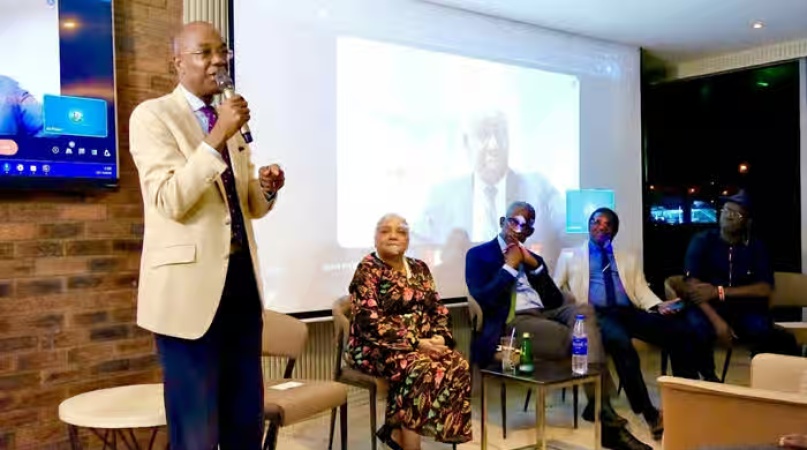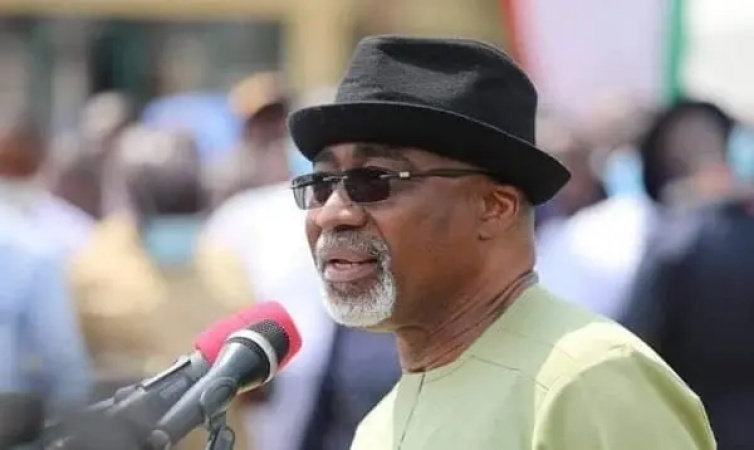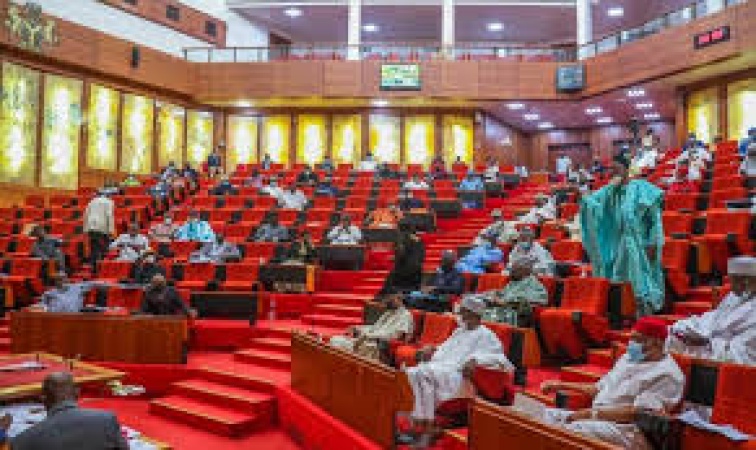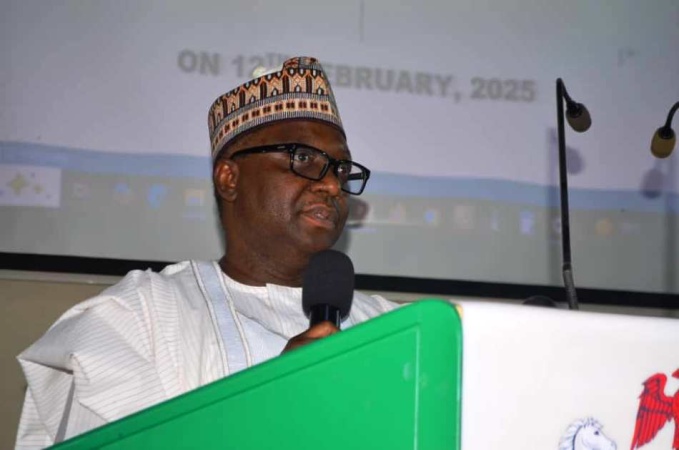





























Loading banners


NEWS EXPRESS is Nigeria’s leading online newspaper. Published by Africa’s international award-winning journalist, Mr. Isaac Umunna, NEWS EXPRESS is Nigeria’s first truly professional online daily newspaper. It is published from Lagos, Nigeria’s economic and media hub, and has a provision for occasional special print editions. Thanks to our vast network of sources and dedicated team of professional journalists and contributors spread across Nigeria and overseas, NEWS EXPRESS has become synonymous with newsbreaks and exclusive stories from around the world.

WHEN the blest seed of Terah’s faithful son
After long toil their liberty had won,
And past from Pharian fields to Canaan land,
Led by the strength of the Almighty’s hand,
Jehovah’s wonders were in Israel shown,
His praise and glory was in Israel known…
So began the opening lines of John Milton’s (1608– 1674) “A Paraphrase on Psalm 114” which was penned when Milton was just fifteen years old. Like all of John Milton’s works, it is a compelling read, and profound in its rendering of the events surrounding the lives of the Jews (The blest seed of Terah’s faithful son).
They were blessed. They toiled to win their liberty. They came into the Promised Land led by the strength of the Almighty. Jehovah’s wonders were shown in Akwa Ibom State (sorry dear Milton, Israel). His praise and glory was known and God’s will was done in Israel (oh blimey! One means Akwa Ibom State). Okay, this was a little play with words … but the moral of the story is that these lines could have been written about Akwa Ibom State.
This is not the only Milton’s work that is “Akwaibomesque” (hope you do not mind the coinage). In the epic Paradise Lost, John Milton tells the story of Satan’s rebellion against God and how he and his co-rebel angels were thrown down to earth. The narration is in pulsating verse in this seamless piece of classical poetry. Milton states, “Of Man’s first disobedience, and the fruit/ Of that forbidden tree whose mortal taste/ Brought death into the world, and all our woe.”
Paradise Lost is an epic of the very first order: vast and complex in scope, potent in its rendition, evocative in its rhetoric, rich in imagery, complex in plots. It is a gripping tale, which intensifies the Biblical theme of man’s downfall in the first Paradise. Samuel Johnson (1709– 1784), poet, essayist, moralist, literary critic, biographer, editor and lexicographer, praisedParadise Lostas “a poem which ... with respect to design may claim the first place, and with respect to performance, the second, among the productions of the human mind.”
Akwa Ibom knows about Paradise lost. It was the first place where a demand was made for the creation of states in Nigeria (in 1954). As a matter of fact, the Ibibio State Union was formed earlier in 1928 and the concept of states in Nigeria was born in the minds of those patriarchs. Yet Akwa Ibom lost its paradise of hope when it missed out in the state creation exercise in 1967. Lumped with Cross River State in that state creation exercise, the people of Akwa Ibom State continued a sustained struggle for a state. This came twenty years after.
The sequel to Paradise Lost is Paradise Regained, by the same author. Having chronicled man’s fall, he decides to cast his searchlight on Jesus Christ and show how Paradise was regained for all mankind.
Hear him:
Who e’re while the happy Garden sung,
By one man’s disobedience lost, now sing
Recover’d Paradise to all mankind,
By one man’s firm obedience fully tri’d
Through all temptation, and the Tempter foil’d
In all his wiles, defeated and repuls’t,
And Eden rais’d in the wast Wilderness.
Now that ties in with the Akwa Ibom story. Paradise was regained when the state was created in 1987. The tortuous work to translate the dreams of the “prophets” who saw the state and nourished it in their bosoms into reality began on a slow note. But things have fully ripened in the last five years under the administration of Governor Godswill Akpabio. Under his administration, paradise has been regained and “Jehovah’s wonders have been known and seen in Akwa Ibom State.”
John Milton, who was described by William Hayley(1745–1820), another celebrated English writer, as the “greatest English author” shares the same birthday with Chief Godswill Obot Akpabio, the Governor of Akwa Ibom State, who has been described by many as the “greatest Nigerian governor.” That is no idle claim. Governor Godswill Akpabio is the first Nigerian Governor to be awarded the Congressional Certificate of Recognition of the United States; the first to be conferred with the Honorary Doctorate Degree of the Nigeria Defence Academy; the most honoured Governor in Nigeria’s history (over ten honorary degrees/fellowships from the leading universities and polytechnics in Nigeria); the first to be honoured with the Nehemiah Award for the development of infrastructure by two leading churches (The Anglican Church and the African Church); the most honoured Governor by the media (his Man of the Year Awards by the media are too numerous to list); and his uncommon transformation of Akwa Ibom State has remained the stuff of the legend, eliciting such comments as “when I arrived Uyo after not being here for 12 years I thought the Governor had played a trick on me and taken me to another city” (Nobel Laureate Prof. Wole Soyinka on his last visit to the state).
Milton was born on December 9, 1608 in London. Governor Akpabio was born on Sunday, December 9, 1962 at Ukana Ikot Ntuen, Essien Udim Local Government Area. Today is the seventh time that his birthday is falling on a Sunday and it is instructive that this is his Fiftieth Birthday. Seven, according to Christian tradition, is the number of completion; so a seventh Sunday means a complete life of worship.
Milton allied himself with Oliver Cromwell who led the people of England in a civil war to liberate them from the King. Though Cromwell is one of the most controversial figures in British history, his legacies outweigh his criticisms. He sacked parliament, but he made fairer laws in the country and made life easier for the people. Milton was at some point Cromwell’s scribe. Cromwell was born poor, but he rose to become the Lord Protector of England. He was deeply religious and brought the nation under God. He kept Britain together.
Some of what Cromwell achieved and earned Milton’s respect, Governor Akpabio has achieved. He came from a humble background (raised by a widow mother) but he has become the defender of the people. He has inaugurated policies like the free education for children from primary to senior secondary school; free healthcare for babies up to the age of five, pregnant women and the aged. Again, like Cromwell, he has brought Akwa Ibom under God in holding an inter-denominational solemn assembly at the beginning of every year and an inter-denominational service monthly in the Governor’s Lodge Chapel known as “St. John’s Chaplaincy.” The Church in Akwa Ibom has come to recognise him as the governor who has related the most and has the best relationship with the Church.
If John Milton were an Akwa Ibom man born at this time, he would have been working with Governor Akpabio. Writing about Cromwell, he described him as the “Chief of men” in his sonnet of May, 1662. Well, as the 50th Birthday of Governor Godswill Akpabio is being celebrated today, one wonders what Milton would have written of him and what kind of sonnet it would have been.
What sonnet would he have written about a man who has transformed the landscape of Akwa Ibom State and tarred over 300 roads, built five flyovers? What sonnet for a man who has turned Uyo (once a rural town) into one of the most beautiful cities in Nigeria? What poem about the renaissance in infrastructure which has witnessed the completion of an airport met at site-clearing level, the completion of Ibom Power Plant, the building of the Tropicana Entertainment Centre (on-going), Twentieth Anniversary Specialist Hospital (on-going), two underground pipe-jacking systems (the first of their kind in Africa), the E-Library (the first of its kind in West Africa), construction of over 4,000 Inter-ministerial Projects, etc?
Writing about Williams Shakespeare in his poem, “On Shakespeare,” Milton wrote, “Thou in our wonder and astonishment/Hast built thyself a live-long monument…” As the world bids Governor Godswill Obot Akpabio a Happy Golden Birthday, one feels compelled to borrow these words and tell Governor Akpabio that “In our wonder and astonishment, he has built for himself and Akwa Ibom State live-long monuments.”
Happy birthday.
•Photo: Governor Akpabio.
(Pastor Ukpe is the Senior Special Assistant, Media, to Governor Akpabio. He sent this piece from Uyo.)